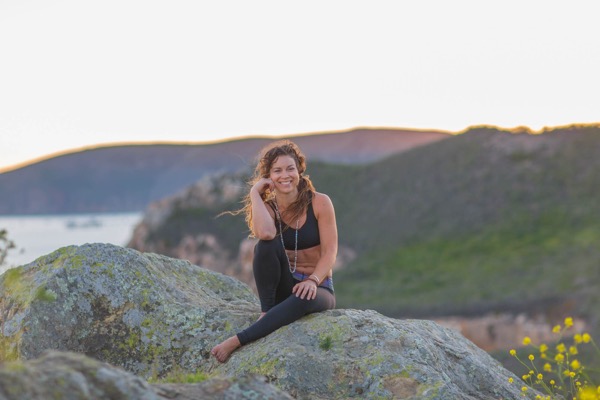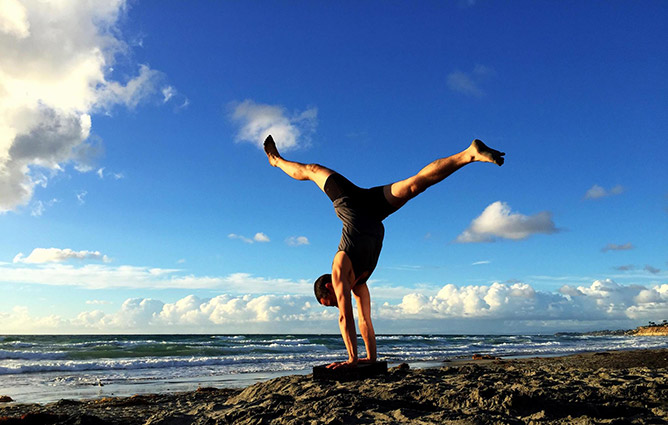Comparison Carnival Ride
Do you have a comparison habit? It comes slinking in. Christmas postcards of attire-matching, happy family units; Valentine’s commercials of attractive, hand-in-hand couples, left hand modeling a forever diamond; SOLD-OUT Fall yoga retreats in paradisical lotus lands; grad school buddies publishing yet another book, having another child, thriving in another business. And here you are holding unpaid bills and lukewarm coffee, gray slush of yesterday’s snow dump barricading you inside, your holiday waistline filling out your yoga pants. No new contracts. New year, Same you.
Let it land. That comparison storm.
We all have a drive within us to gain accurate self-evaluations. To some extent, we determine our own social and personal worth based on how we measure against others in multiple arenas (attractiveness, wealth, intelligence, and success). Social comparison theory suggests comparing ourselves to others is an innate and learned behavior. We mirror our parents, friends, media. Some of us are less affected by this tendency; for others, it’s a strangling vice–a carnival ride of ups, downs, twists, turns in a never ending hall of distorting mirrors.
We need not buy into these half-truths. We can and we should interrupt our “comparison habits.” It’s a silly, sickly game. And we needn’t play it.
I’m here as a not-so-distant-past Comparison Junkie to share insights around why comparison harms us, contracting our lives, and how yoga and writing help us get off the comparison carnival ride (and I don’t mean the swings. Swings are fun. Swings give you wings. I mean the vomit-inducing, zero-gravity, death-drop-brain-scramble Gravitron).

All ABOARD!!!
By some stroke of luck—and a savings account called, Paris–, I found myself in a lavender skirted mansion in Mougins, France. I joined my friend for the Holistic Garden Party, “an uplifting, inspirational wellbeing retreat,” and plopped on a cushy sofa to listen to Lucy Sheridan, “AKA the UK’s first Comparison Coach.” With her cropped, punk bangs and quick-wit British aphorisms, I learned a few truths about comparison, namely it’s a pervasive, colossal impediment to our happiness.
Remember those Jetson-like trash compactors from the 80s? You’d stuff the trash bin, press a button, and squash; everything compacted to less than before.
That’s what happens to your SOUL when we’re in a comparison episode.
And I say “episode” because comparison CAN have a pedagogical function. We review before-and-after photos to improve alignment in our asana practice (ever completed Noah’s “Pose Shape Studies”?); when a relationship ends, we take stalk of what worked and what did not; we assess our energy: introvert or extrovert. But this thoughtful evaluating is NOT the obsessive, diminishing mode of a comparison episode (i.e. the opening anecdote).

Here are a few reasons comparison is a Soul-Compactor.
Comparison:
- Keeps us Separate. Comparison divides us into I versus You. We devolve into the delusion of separation—a much harder, lonelier place to be.
- Disconnects us from our Source, our light, because rather than looking inward to our spiritual core, we’re looking outward for validation of how we’re generally better than our family or those people that drive slow in the passing lane, or how we’re not-now-not-ever-no-way-in-hell as good as person X,Y, or (someone on the internet we’ve never met) Z.
- Reinforces the belief we must Perform in order to Receive Love. I was the youngest of four daughters and learned early on in order to get Dad’s attention—how I felt his love—, I needed to perform. So, I did. I was a straight-A student, gold medalist figure skater, and a size 2 exercise addict. I worked hard to keep up my performance. Exhausting. The pattern doesn’t end. Maybe the criteria shift from grades to earnings, from medals to book deals, but comparison’s insidious equation remains: In order to be loved, accepted, or successful—we must perform. (But it’s bad math. Look into the eyes of your child, your lover, your friend…they don’t have to do a perfect pirouette for you to embrace them with love. They just are, and you love them just because.)
- Limits Possibilities because we feel we must check off certain boxes: fit body, practical degree, solid marriage, booming business, spacious house, two children, healthy savings, vegetarian, Paleo-tarian, weekend warrior, etc. In running after these benchmark boxes, created by societal forces with which you may or may not align, you lose your way.
- Distracts us from our Depth. Comparison keeps us in the shallows because we miss the deep dive into our own personal journey. If we have poverty of soul with ourselves, we will probably miss the rich complexity of depth and mutuality in our relationships. Anaïs Nin writes, “I must be a mermaid, Rango. I have no fear of depths and a great fear of shallow living.” Comparison keeps us kicking up the surf when we could be mermaids.
- Deters us from our Dharma. If we’re trying to live out someone else’s beautiful life and sacred work, we’re missing our own, and that’s tragic because the world needs your gifts and talents, your struggles and insights. When we’re aligned with our sankalpa–vow above all vows, connective tissues to our dharma—, we give others permission to do the same. And the world is better for it.
- Diminishes our Self-Esteem because when we compare, we often despair, for our daily experiences and feelings don’t usually live up to the highlight reels of others. I’m not advocating we delete our social accounts (although, that might be right for you). But I wonder, can we employ some healthy realism and skip the despair? Perhaps less engagement and more discernment equals greater self-esteem (LE+MD=GSE). That’s good math. As we practice yoga and meditation, we strengthen this cohesive sense of Self…and then let it fall away into the larger story of our lives, together.
- Shackles our Creativity by lowering our frequency and kinking the flow of creative energy. As a writer and creator—we are all creators—, this point is a significant red flag. It saddens me to see how comparison in grad school, AWP conferences, literary journals, online publications, and social media has contributed to my poetic barrenness. I compared, came up short (even with the degree, publications, and words of affirmation), and despaired. I quit writing…when what I needed was to quit comparison. If creative expression and output are essential for your career, dharma, soul-print—, then you must get off the comparison carnival ride.
This way to exit the ride.

You see what a drag this comparison habit has become. You cringe when your friends do it. You want to quit, like yesterday, but when the triggers are everywhere (in your hand), HOW?
These are just a few tips. Find what works for you.
- Practice yoga. Yoga and meditation are the best ways to surrender the mind, return to the present, and connect with your essential/higher/less agitated/more possible/divine Self. In Patanjali’s Yoga Sutras, we read of four ways to calm the mind (1.33). Mudita, the third of the brahmaviharas, or yogic teachings on love, is the ability to take active delight in others’ good fortune or good deeds. This energetic blueprint is an antidote to jealousy, lack mentality, or the feeling that your happiness is shortchanged by the happiness of others.
- Be Nature, or if you need an avatar, your spirit animal. The dolphin doesn’t despair his lack of wings. The fawn feeds on flowers, feels her strength and grace leaping up hillsides. Lizards are so good at being lizards. Rather than emulate someone else’s unique gifts and talents, mine your own.
- Stop. Drop, and Roll. Stop the comparison shower before it becomes a storm. Interrupt the story. Whenever a comparative, critical thought comes, try swiping your thumb left, using the neural chunk we associate with “delete.” Drop the thought, the spoken words…the phone (on a soft surface). Roll your shoulders back.
- Redirect your Attention. If comparison has you obsessing about body image, consciously pivot your focus to what’s exciting about that new project at work, or how empowering it feels to transition from Ustrasana to Urdhva Dhanurasana and, if you’re Noah, back through Ustrasana to Virasana…Sirsasana…Kapotasana…. That’s a lotta asana. And you’re NOT thinking about body image anymore.
- Reawaken your Desire. When comparison sends you into a jealousy tailspin, flames running up your spine, use it as fuel for your own desires. My friend Ashley Beels, Meraki strategist, suggests we do jealousy journaling: 1. Be honest with yourself, and write down what made you jealous. 2. Dive deeper. Next to each “jealousy entry,” write the feeling you would get if you too had that thing/person/experience/place. 3. Set your intention, and go after the feeling.
- Stay in your own Lane. Rather than veering over into your neighbor’s lane, potentially causing a crash, become excited about your own journey. Don’t conform to someone else’s norm. Be a radical for your story, and how it serves the highest good for your family, your community, your students, our world. Our lives may never be 100% comparison free, but we can avoid the soul-compactor by practicing self-awareness and conscious choosing.
So, keep showing up to yoga practice, channel your spirit animal, stop/drop/roll, redirect your attention, and awaken your desire. Staying in your own lane—choosing your own pit stops, scenic routes, and detours—is sexy. And essential.
If you know someone in the chokehold of comparison, ready to get off the Gravitron, please share this blog.

LESLIE ST. JOHN, creator of Prose and Poses, is a self-expression muse, helping people get “unstuck.” Using the modalities of yoga, Qoya, and writing, she helps people unshackle creativity, feel their bodies as allies, and cultivate more self-intimacy. She earned her MFA from Purdue University and is a certified 500hr RYT, studying with Tias Little and Noah Mazé. Her writing is published in Elephant Journal, Teach.Yoga, Yoga Revolutionaries, Apersus Quartery, Oxford American, Rebelle Society, and Verse Daily. When she’s not teaching English at Cal Poly or one of her many yoga classes, workshops, and retreats, you’ll find her writing at a café, hunting vintage shops, or hiking with her dog.
If you’d like to explore your expression and cultivate self-intimacy in a “paradiscial lotus land,” join Leslie for a soulful vacation in the Mayan Riviera, Mexico on April 15-21, 2018: http://www.proseandposes.com/mayan-riviera-retreat/
To learn more about Leslie:
http://www.proseandposes.com
IG: @proseandposes
FB: https://www.facebook.com/leslieyogaandwriting/
